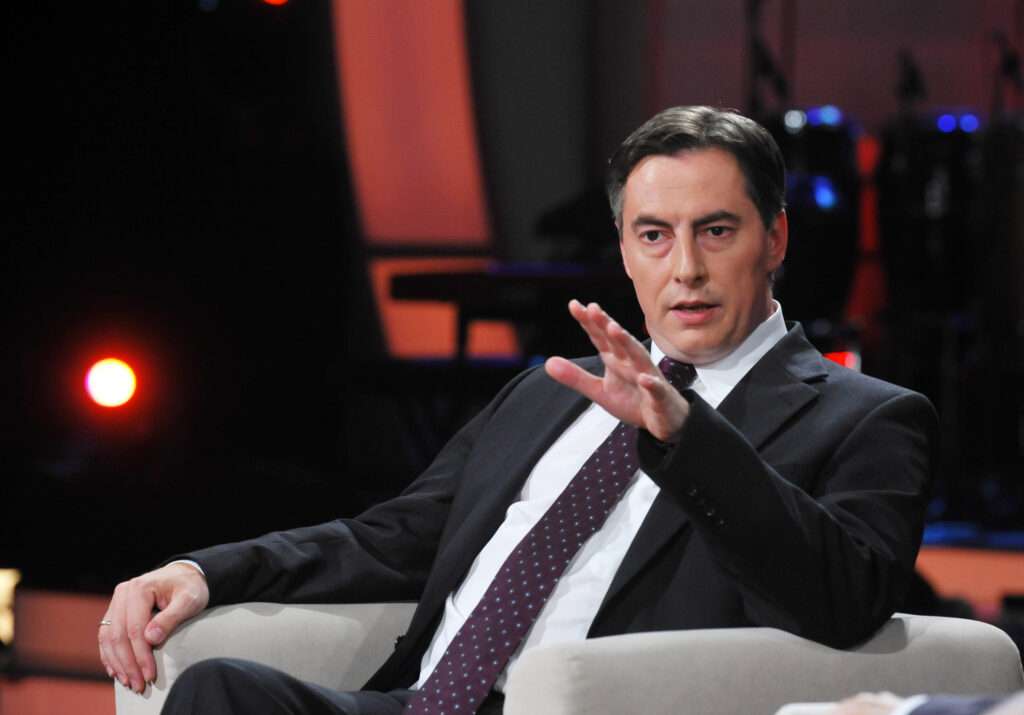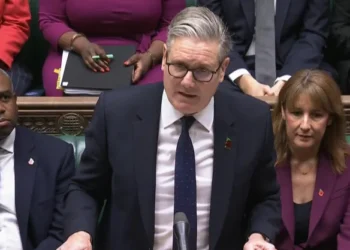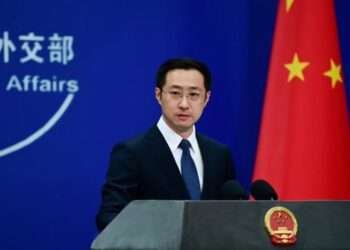Since taking office, the Labour Party has been gradually steering the UK back towards the European Union in efforts to rekindle the relationship that existed pre-Brexit.
The Labour Party’s proposed foreign policy and security pact with the European Union has been described as “quite promising” by David McAllister, the head of the European Parliament’s foreign affairs committee.
McAllister emphasized the need for the British government to present proposals that are “as concrete as possible” in the coming weeks and months.
David McAllister, a seasoned German MEP and a close ally of European Commission President Ursula von der Leyen, outlined a comprehensive vision for the pact.
He suggested that it should encompass economic, climate, health, cyber, and energy security.
This extensive list aligns closely with the UK Foreign Secretary David Lammy’s recent proposals. Lammy has been actively engaging with his European counterparts, having met officials in Berlin, Stockholm, and Bydgoszcz in northern Poland.
In anticipation of the European Political Community (EPC) summit at Blenheim Palace, which will gather leaders from around 45 European countries, McAllister reiterated the EU’s desire for closer post-Brexit security cooperation.
“We have always wanted closer post-Brexit security cooperation. At the moment we have as the EU more structured ties with the US, Canada, and Norway than we do with the UK. So if David Lammy and [the defense secretary] John Healey are calling for a security pact with the EU, I think that this will be welcomed in Brussels.”
David McAllister
Although the EPC, an initiative proposed by France’s Emmanuel Macron, is not designed to address EU-UK relations directly, it offers UK Labour leader Keir Starmer an opportunity to present a fresh approach to the EU.
For the new government, this moment carries significant symbolic weight. EU diplomats are eager to move past the acrimony of the Brexit era, noting improved relations since the signing of the Windsor framework agreement under former Prime Minister Rishi Sunak.
EU-UK Relations, A Possibility
David McAllister, a prominent member of Germany’s center-right CDU party and anticipated to secure a fourth term as chair of the European Parliament’s foreign affairs committee, expressed optimism about future EU-UK relations.
“Hopefully this election result will allow us to build on the trust and progress already made with Prime Minister Sunak’s government,” he remarked.

“One thing is clear: a period of calm, predictable, and constructive diplomacy will be very beneficial for our bilateral partnership.”
A senior EU official echoed this sentiment, noting “good vibes” from initial interactions with the new British government.
They confirmed that any proposals on foreign and security cooperation would be “looked at with an open mind.”
The EU has long sought a foreign and security agreement with the UK, but former Prime Minister Boris Johnson abandoned the idea in favor of a “Global Britain” policy, which distanced the UK from European institutions.
Despite this, Brussels officials are not keen on reopening the post-Brexit deal agreed with Johnson’s government.
However, they are interested in new agreements on youth mobility and fisheries once the current arrangements expire in 2026.
McAllister expressed a desire for the UK to “quickly rejoin” the Erasmus student exchange scheme and urged both sides to reduce barriers for youth mobility.
While the European Parliament has limited influence in foreign policy, it plays a crucial role in setting and reflecting the EU’s agenda.
Currently, the EU holds regular summits with countries like Switzerland, Norway, Canada, New Zealand, China, and Japan, but not with the UK. Both London and Brussels are interested in establishing regular EU-UK summits.
McAllister advocated for “regular strategic consultations at the political level,” suggesting that the British Prime Minister or Foreign Secretary should be invited to relevant EU meetings.
However, he cautioned that the UK should not expect a permanent invitation to the EU’s monthly foreign affairs minister meetings.
While Lammy has been invited to the October meeting, officials have ruled out a standing invitation. “Absolutely not, it’s unthinkable,” a second EU official stated.
Despite this, the bloc occasionally invites non-EU guests to foreign minister meetings, with the UK having attended once in March 2022, following Russia’s invasion of Ukraine.
READ ALSO: Youth Disillusionment with Democracy, a Call for Responsive Governance























